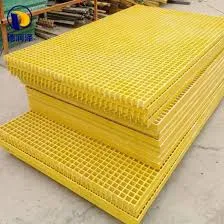
-
 Afrikaans
Afrikaans -
 Albanian
Albanian -
 Amharic
Amharic -
 Arabic
Arabic -
 Armenian
Armenian -
 Azerbaijani
Azerbaijani -
 Basque
Basque -
 Belarusian
Belarusian -
 Bengali
Bengali -
 Bosnian
Bosnian -
 Bulgarian
Bulgarian -
 Catalan
Catalan -
 Cebuano
Cebuano -
 China
China -
 China (Taiwan)
China (Taiwan) -
 Corsican
Corsican -
 Croatian
Croatian -
 Czech
Czech -
 Danish
Danish -
 Dutch
Dutch -
 English
English -
 Esperanto
Esperanto -
 Estonian
Estonian -
 Finnish
Finnish -
 French
French -
 Frisian
Frisian -
 Galician
Galician -
 Georgian
Georgian -
 German
German -
 Greek
Greek -
 Gujarati
Gujarati -
 Haitian Creole
Haitian Creole -
 hausa
hausa -
 hawaiian
hawaiian -
 Hebrew
Hebrew -
 Hindi
Hindi -
 Miao
Miao -
 Hungarian
Hungarian -
 Icelandic
Icelandic -
 igbo
igbo -
 Indonesian
Indonesian -
 irish
irish -
 Italian
Italian -
 Japanese
Japanese -
 Javanese
Javanese -
 Kannada
Kannada -
 kazakh
kazakh -
 Khmer
Khmer -
 Rwandese
Rwandese -
 Korean
Korean -
 Kurdish
Kurdish -
 Kyrgyz
Kyrgyz -
 Lao
Lao -
 Latin
Latin -
 Latvian
Latvian -
 Lithuanian
Lithuanian -
 Luxembourgish
Luxembourgish -
 Macedonian
Macedonian -
 Malgashi
Malgashi -
 Malay
Malay -
 Malayalam
Malayalam -
 Maltese
Maltese -
 Maori
Maori -
 Marathi
Marathi -
 Mongolian
Mongolian -
 Myanmar
Myanmar -
 Nepali
Nepali -
 Norwegian
Norwegian -
 Norwegian
Norwegian -
 Occitan
Occitan -
 Pashto
Pashto -
 Persian
Persian -
 Polish
Polish -
 Portuguese
Portuguese -
 Punjabi
Punjabi -
 Romanian
Romanian -
 Russian
Russian -
 Samoan
Samoan -
 Scottish Gaelic
Scottish Gaelic -
 Serbian
Serbian -
 Sesotho
Sesotho -
 Shona
Shona -
 Sindhi
Sindhi -
 Sinhala
Sinhala -
 Slovak
Slovak -
 Slovenian
Slovenian -
 Somali
Somali -
 Spanish
Spanish -
 Sundanese
Sundanese -
 Swahili
Swahili -
 Swedish
Swedish -
 Tagalog
Tagalog -
 Tajik
Tajik -
 Tamil
Tamil -
 Tatar
Tatar -
 Telugu
Telugu -
 Thai
Thai -
 Turkish
Turkish -
 Turkmen
Turkmen -
 Ukrainian
Ukrainian -
 Urdu
Urdu -
 Uighur
Uighur -
 Uzbek
Uzbek -
 Vietnamese
Vietnamese -
 Welsh
Welsh -
 Bantu
Bantu -
 Yiddish
Yiddish -
 Yoruba
Yoruba -
 Zulu
Zulu
Innovative Applications of FRP Drum in Modern Industry
Understanding FRP Drums A Comprehensive Overview
Fiberglass Reinforced Plastic (FRP) drums have gained popularity across various industries due to their exceptional strength, resistance to corrosion, and lightweight properties. This article aims to provide an in-depth look at FRP drums, their construction, applications, advantages, and considerations for use.
What are FRP Drums?
FRP drums are cylindrical containers made primarily from fiberglass reinforced plastics. The unique composition of these materials gives FRP drums a robust structure while keeping them relatively lightweight compared to traditional metal or plastic drums. The reinforcement from fiberglass provides superior impact resistance and durability, making these drums suitable for various applications, especially those that require transporting hazardous materials.
Construction of FRP Drums
The construction process of FRP drums involves layers of resin and fiberglass being molded together to create a strong and impermeable vessel. Typically, this process includes
1. Molding The first step involves creating a mold that defines the shape and size of the drum. The fiberglass fabric is laid into the mold, followed by the application of a resin mixture.
2. Curing Once the layers are set, the resin is allowed to cure at room temperature or with the help of heat to harden the structure. This curing process is critical for ensuring the drum’s strength and integrity.
3. Finishing After curing, the drums may undergo additional processes such as sanding, painting, or adding protective coatings to enhance appearance and resistance against environmental factors.
Applications of FRP Drums
FRP drums are utilized in a variety of sectors due to their versatile characteristics. Some common applications include
- Chemical Industry Their resistance to a wide range of chemicals makes them suitable for storing and transporting aggressive substances, such as acids and solvents.
- Food and Beverage Industry Certain FRP drums are designed to meet food safety standards and are used for storing food-grade materials, ensuring no contamination occurs.
- Pharmaceuticals Clean and leak-proof, FRP drums are ideal for pharmaceutical products that require stringent storage conditions.
frp drum

- Oil and Gas Sector Their durability and resistance to corrosion allow for effective transportation and storage of oil and gas products.
Advantages of Using FRP Drums
1. Corrosion Resistance Unlike metal drums, which may rust over time, FRP drums resist corrosion from chemicals and environmental factors, making them a long-lasting option.
2. Lightweight The lighter weight of FRP drums reduces transportation costs and allows for easier handling compared to heavier metal alternatives.
3. Durability With their reinforced structure, FRP drums can withstand harsh conditions, including extreme temperatures and physical impacts.
4. Customizability Manufacturers can easily modify FRP drum designs to meet specific requirements, including size, shape, and capacity.
5. Environmental Considerations FRP materials can often be designed to be recyclable, contributing to a reduced environmental impact compared to traditional plastic or metal options.
Considerations When Using FRP Drums
Despite their many advantages, users need to consider a few factors when working with FRP drums
- Temperature Limits FRP drums may have limitations in extreme temperature conditions, so it's crucial to verify their specifications for specific applications.
- Proper Handling While they are durable, FRP drums still require proper handling to avoid impacts that could lead to structural damage.
- Regulatory Compliance Always ensure that the FRP drums meet regulatory standards for storing and transporting the specific materials they will hold.
Conclusion
In conclusion, FRP drums offer an excellent alternative for industries requiring reliable, lightweight, and corrosion-resistant containers. Their diverse applications across multiple sectors demonstrate their versatility and effectiveness. By understanding their construction, benefits, and considerations, organizations can make informed decisions when selecting storage and transportation solutions. As technology advances and industries strive for efficiency and safety, FRP drums are poised to play a critical role in future operations.









